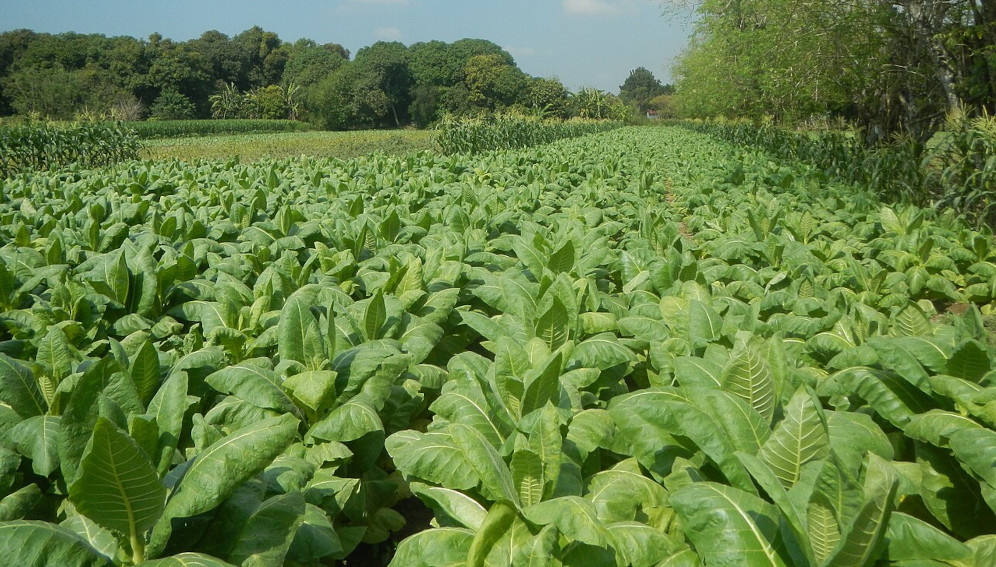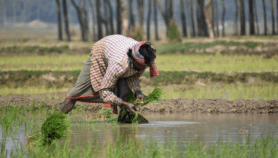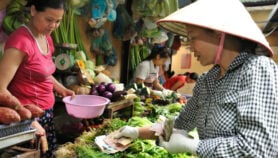09/06/23
WHO calls on Asian countries to quit tobacco farming

By: Sanjeet Bagcchi
Send to a friend
The details you provide on this page will not be used to send unsolicited email, and will not be sold to a 3rd party. See privacy policy.
[NEW DELHI] The World Health Organization (WHO) has asked countries in its Western Pacific region to repeal subsidies on growing tobacco and, instead, promote the cultivation of sustainable crops, including rice and vegetables.
About 400 million people in the Western Pacific region are smokers and three million a year die from tobacco-related diseases, WHO figures show.
“Imagine if we used the same 1 million hectares to grow nutritious food. We could nourish millions of people, help children grow and develop, and support adults to reach their full potential.”
Zsuzsanna Jakab, WHO acting regional director for the Western Pacific
The region covers several top tobacco-producing countries, including Cambodia, Japan, the Philippines, South Korea and Vietnam, with over one million hectares of land dedicated to tobacco farming.
“Imagine if we used the same one million hectares to grow nutritious food,” says Zsuzsanna Jakab, WHO acting regional director for the Western Pacific.
“We could nourish millions of people, help children grow and develop, and support adults to reach their full potential.”
Smoking tobacco is widely recognised as the leading risk factor for lung cancer. Cigarette smokers are 15 to 30 times more likely to get lung cancer or die from the disease than non-smokers, according to the US Centers for Disease Control and Prevention.
Cigarette smoking also causes cancers of the mouth and throat, oesophagus, stomach, colon, rectum, liver, pancreas, larynx (voice box), trachea, bronchus, kidney, urinary bladder, and cervix as well as acute myeloid leukaemia.
WHO estimates that land devoted to tobacco farming in the Western Pacific could be repurposed to grow about 60,000 tonnes of fruits and vegetables, which could meet the daily recommended needs of over 400,000 people a year.
Alternatively, it could be used to grow 243,000 tonnes of rice, which could support three million people per year and contribute to reducing food insecurity, the UN health agency suggests.
Tobacco farming damages the environment through deforestation, water contamination and soil degradation. Tobacco farmers and their family also often face health issues from exposure to tobacco dust and pesticides.
A study conducted in Bangladesh suggested that tobacco farmers are at risk of cancer, respiratory ailments, allergies and skin-related disorders but are attracted by the profits to be made from tobacco farming.
International tobacco companies active in Malaysia and the Philippines did not respond as of press time to SciDev.Net’s queries regarding WHO’s calls for a reduction in tobacco farming in the Western Pacific region.
Diptendra Kumar Sarkar, public health expert and professor at the Institute of Post Graduate Medical Education and Research, Kolkata, India, tells SciDev.Net that revenue and job losses in the industry may weigh against the introduction of laws banning tobacco cultivation.
“But the balance would tilt heavily against it if the expenditure on tobacco-related agricultural loss exceeds tobacco-related health care expenditure,” he said.
Sarkar recommends a “phased, targeted approach” to reducing tobacco cultivation considering that “while social awareness is an acceptable model, its effects are only in the long-term and quite unpredictable”.
All countries in the WHO Western Pacific region are parties to the WHO Framework Convention on Tobacco Control adopted in 2003 by the World Health Assembly, which entered into force in 2005. Under the treaty 180 countries are committed to promoting financially viable alternatives for tobacco farmers and workers and ending subsidies to tobacco farming.
Anish Ray, a paediatric blood cancer specialist working at the Cook Children’s Medical Center, in Texas, US, told SciDev.Net that the WHO move was very welcome but long overdue.
“It remains to be seen how world leaders choose to act upon this very important health initiative — tobacco has been responsible for health hazards and loss of lives for centuries,” he said.
This piece was produced by SciDev.Net’s Asia & Pacific desk.















